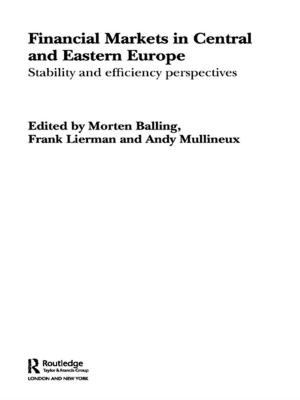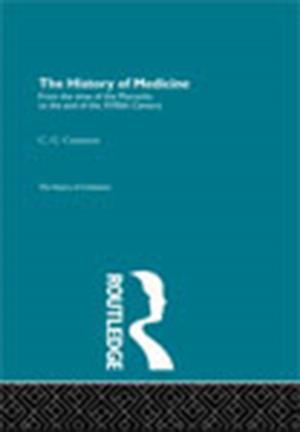Regenerating Bodies
Tissue and Cell Therapies in the Twenty-First Century
Nonfiction, Health & Well Being, Medical, Medical Science, Genetics, Reference, Ethics, Social & Cultural Studies, Social Science, Gender Studies, Feminism & Feminist Theory| Author: | Julie Kent | ISBN: | 9781136596247 |
| Publisher: | Taylor and Francis | Publication: | July 26, 2012 |
| Imprint: | Routledge | Language: | English |
| Author: | Julie Kent |
| ISBN: | 9781136596247 |
| Publisher: | Taylor and Francis |
| Publication: | July 26, 2012 |
| Imprint: | Routledge |
| Language: | English |
This exciting book examines how human tissues and cells are being exchanged, commodified and commercialized by new health technologies. Through a discussion of emergent global ‘tissue economies’ the author explores the social dynamics of innovation in the fields of tissue engineering and stem cell science. The book explores how regenerative medicine configures and conceptualizes bodies and argues that the development of regenerative medicine is a feminist issue.
In Regenerating Bodies, Kent critically examines the transformative potential of regenerative medicine and whether it represents a paradigm shift from more traditional forms of biomedicine. The book shows that users of these technologies are gendered and women’s bodies are enrolled in the production of them in particular ways. So what is the value of a feminist bioethics for thinking about the ethical issues at stake? Drawing on extensive qualitative field research, Kent examines the issues around donation, procurement, banking and engineering of human tissues, and presents an analysis of the regulatory and policy debates surrounding these practices within Europe and the UK.
The book considers the claims that regenerative medicine represents exciting possibilities for treating the diseases of ageing bodies, critically assessing what kind of futures are embodied in tissue and cell based therapies. It will be of interest to a wide range of scholars and students within the social sciences, in health technology studies, bioethics, feminist studies, and gender and health studies.
This exciting book examines how human tissues and cells are being exchanged, commodified and commercialized by new health technologies. Through a discussion of emergent global ‘tissue economies’ the author explores the social dynamics of innovation in the fields of tissue engineering and stem cell science. The book explores how regenerative medicine configures and conceptualizes bodies and argues that the development of regenerative medicine is a feminist issue.
In Regenerating Bodies, Kent critically examines the transformative potential of regenerative medicine and whether it represents a paradigm shift from more traditional forms of biomedicine. The book shows that users of these technologies are gendered and women’s bodies are enrolled in the production of them in particular ways. So what is the value of a feminist bioethics for thinking about the ethical issues at stake? Drawing on extensive qualitative field research, Kent examines the issues around donation, procurement, banking and engineering of human tissues, and presents an analysis of the regulatory and policy debates surrounding these practices within Europe and the UK.
The book considers the claims that regenerative medicine represents exciting possibilities for treating the diseases of ageing bodies, critically assessing what kind of futures are embodied in tissue and cell based therapies. It will be of interest to a wide range of scholars and students within the social sciences, in health technology studies, bioethics, feminist studies, and gender and health studies.















